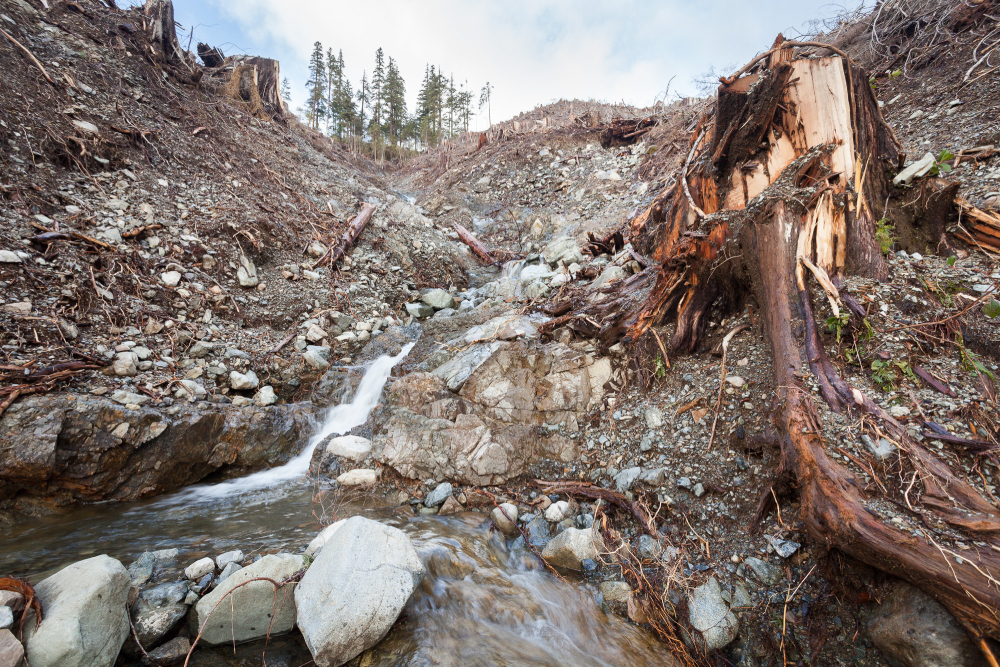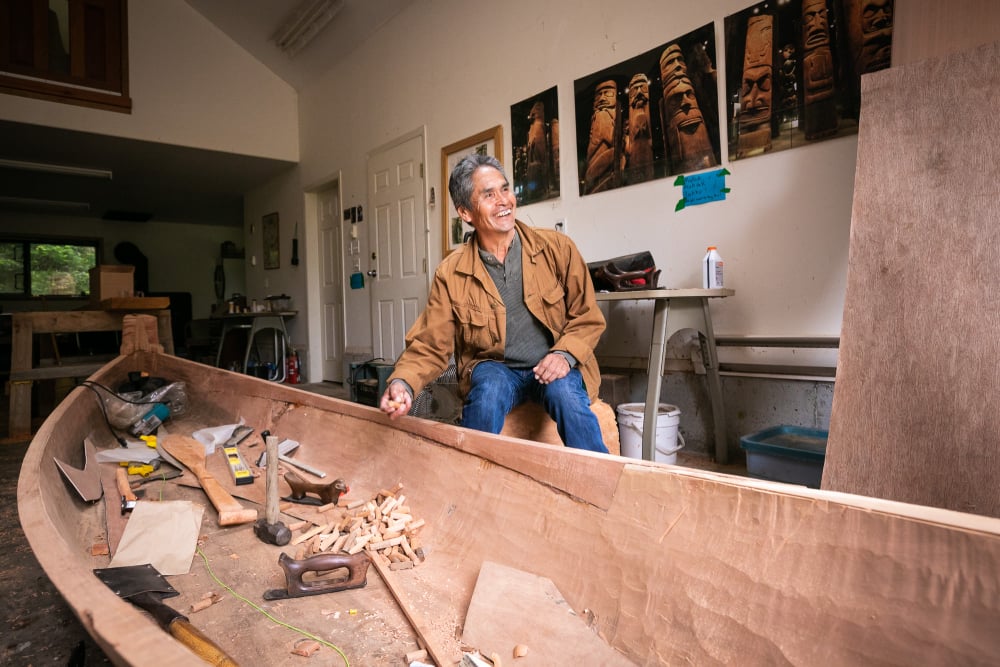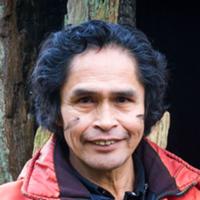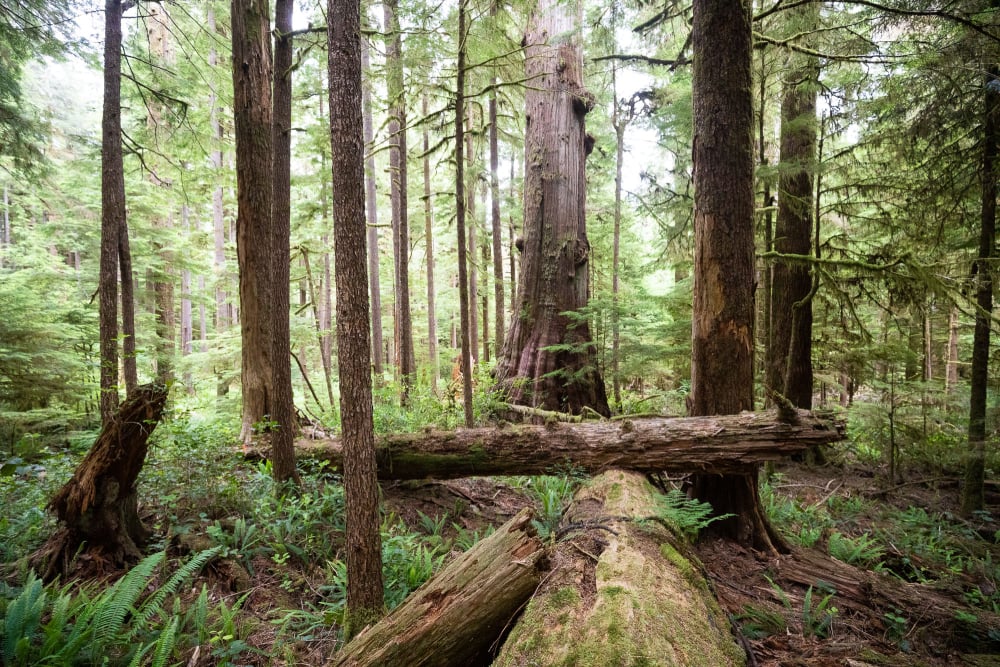The B.C. government is reviewing its policies to manage the province’s old growth forests and seeking public input.
This should be the opportunity for the government to start righting the mistakes of the past.
This new approach must obey the law of nature, under which we all live. This means we must understand Earth’s ecological limits and learn to respect them and live within them.
In Nuu-chah-nulth culture, the teachings of responsibility and respect for the land are passed down by our Elders as soon as our lives are conceived, and they continue until we die. These teachings are cornerstones of our culture, but they are foreign concepts to the provincial government and industry, who view our old growth forests as limitless resources to be plundered.
In my 12 years as a logger in Clayoquot Sound, I witnessed the destruction of some of the biggest trees and finest old growth forests I had ever seen. I witnessed the decimation of salmon streams, once teeming with steelhead, chum and coho, due to the clearcutting of entire valleys and landslides on the steep mountain slopes.
Although there have been significant conservation achievements in Clayoquot Sound through Tla-o-qui-aht Tribal Parks, the destruction of old growth forests continues throughout much of B.C., and the province has continually failed to acknowledge how much has already been lost.
I was eventually fired from my job as a logger for refusing to haul two big logs across a salmon-bearing stream, knowing the logs would destroy key salmon habitat. I felt as though a weight had been lifted. I had become increasingly bothered by how horrible it was, what was happening to the land, so I joined in the effort to save the forest ecosystems I had once been paid to log.
I also took up fishing with my father, who worked as a fisherman, hunter, trapper and canoe builder. Throughout my life he taught me those skills and about how to respect the land, how to avoid disturbing the creeks in the forest to protect the coho, and the protocol to follow when selecting a cedar to cut for our cultural items — spending time in the forest, observing the birds and wildlife and avoiding trees with eagle’s nests or bear or cougar dens close by.
Our people practised for abundance rather than “sustainability.” To me, sustainability means keeping our natural resources on a lifeline until they’re eventually gone or until industry has finally had enough and moved on. Practising for abundance is making sure that your grandchildren won’t have to work as hard as you did. It’s ensuring that when we leave this garden for them, they will have everything they need.
This abundance is what allowed the Nuu-chah-nulth peoples to develop such a rich culture, which depends heavily on the availability of old growth red cedar in particular. We use cedar bark and wood for many cultural items such as woven hats, dugout canoes, totems, bentwood boxes and regalia. Our relationship and respect for these trees, the land and wildlife is represented and reinforced when we create and use these items, and we continue to rely on healthy forest ecosystems to maintain our culture.

The destruction of old growth forests, for Nuu-chah-nulth peoples, equates to a loss of identity. The loss of connection to the land and of our languages threatens our survival and is the cause of many of the social problems in our communities.
Many communities, Indigenous and non-Indigenous, are struggling due to the destruction of forests caused by provincial government mismanagement. On Vancouver Island, about 80 per cent of big-tree forests have been cut and replaced with tree plantations. Much of what remains are bogs or scrub.
Yet companies are still clearcut logging across most of B.C., destroying rivers and streams and harming salmon and other wildlife. Jobs have been lost due to the failure of the province to stop industry from cleaning out the best old growth in the valleys and support slower, careful forestry and processing second-growth timber instead. With so little old growth forest remaining, now is the time for the province to act.
We must listen to what Indigenous wisdom and science tells us, which is that we need to protect more forests to ensure their integrity and our own survival. The B.C. government needs to heed this wisdom and science in its old growth strategy. That means deciding what must be protected before deciding what can or can’t be logged. It means prioritizing biodiversity, fisheries, monumental trees, carbon storage, Indigenous culture, recreation and clean water over timber.
This must be coupled with support for Indigenous communities and economies. Without economic alternatives, many nations do not have the option of refusing logging in their territories.

We must all make a living, and if there are few employment alternatives to destructive resource extraction, what choice is there? None. And so our lands and our culture are sacrificed. The government must provide funding for First Nations’ economic diversification to create jobs while allowing remaining old-growth forests and culturally important areas to be protected.
The Tla-o-qui-aht Tribal Parks in Clayoquot Sound are a good example. Tourism and recreation are big economic drivers here, and there is much work to be done in the tribal parks like building and maintaining infrastructure, which could lead a lot of our people away from jobs in logging and fish farming. I believe this would make the whole community much happier and it would be a great investment for future generations.
The province must recognize the cultural significance of the old growth forests that play such an important role in our lives. They must legally recognize and support Indigenous protected areas like tribal parks, starting in Clayoquot Sound, but also across B.C., and work with nations to support Indigenous-led land-use planning. It’s an important part of our peoples governing ourselves.
We have a responsibility to our future generations, and to uphold the teachings of our ancestors. We have to learn how to live together, how to listen to each other, and how to manage our remaining old-growth forests for abundance for the sake of our children and grandchildren.
The B.C. government is accepting public feedback on its proposed provincial Old Growth Strategy until Friday. For more details and to provide input, go here. ![]()
Read more: Indigenous, Local Economy, BC Politics, Environment

















Tyee Commenting Guidelines
Comments that violate guidelines risk being deleted, and violations may result in a temporary or permanent user ban. Maintain the spirit of good conversation to stay in the discussion.
*Please note The Tyee is not a forum for spreading misinformation about COVID-19, denying its existence or minimizing its risk to public health.
Do:
Do not: